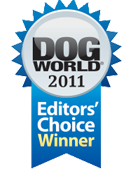Health and Nutrition for Dogs: A Guide for Pet Owners
Introduction
When it comes to our furry friends, nutrition plays a crucial role in their overall health and well-being. Just like us, dogs thrive on a balanced diet, which affects their energy levels, mood, and even lifespan. In this post, we’ll explore essential nutrients, common dietary mistakes, and tips for choosing the best food for your pup.
Essential Nutrients for Dogs
Dogs require a mix of nutrients to stay healthy. Here are the key components to include in their diet:
- Proteins: Essential for muscle development and repair, proteins are the building blocks of your dog’s body. Look for high-quality sources like chicken, beef, and fish.
- Fats: Healthy fats provide energy and help with the absorption of vitamins. Omega-3 and Omega-6 fatty acids are particularly beneficial for skin and coat health.
- Carbohydrates: While not as crucial as proteins and fats, carbohydrates provide energy. Opt for whole grains and vegetables rather than fillers.
- Vitamins and Minerals: A balanced diet should include essential vitamins (like A, D, E) and minerals (like calcium and phosphorus) for various bodily functions.
Common Dietary Mistakes
Even well-meaning dog owners can make dietary missteps. Here are some common mistakes to avoid:
- Feeding Table Scraps: While it might be tempting to share your meal, human food can be unhealthy (or even toxic) for dogs. Stick to dog-friendly treats!
- Choosing Low-Quality Food: Not all dog food is created equal. Be wary of brands that use fillers or artificial ingredients. Always read the labels and look for high-quality, meat-based ingredients.
Choosing the Right Dog Food
Selecting the right dog food can be overwhelming, but here are some tips:
- Read Labels: Look for foods with named meat sources at the top of the ingredient list. Avoid foods that list “meat by-products” or vague terms.
- Understand Different Diets: There are various types of dog food—dry, wet, raw, and homemade. Each has its pros and cons, so choose based on your dog’s preferences and needs.
Special Dietary Needs
Age, breed, and health conditions can significantly influence your dog’s dietary requirements:
- Puppies: They need more protein and calories for growth. Look for food formulated for puppies.
- Senior Dogs: Older dogs may require fewer calories but more fiber to maintain a healthy weight.
- Allergies: If your dog has food allergies, consult your vet for guidance on hypoallergenic diets.
Supplements and Treats
Sometimes, a balanced diet alone isn’t enough. Here’s where supplements come in. Omega-3 fatty acids, for instance, can support joint health and reduce inflammation. When it comes to treats, opt for healthy options like carrot sticks or commercial treats made with natural ingredients.
Conclusion
Prioritizing your dog’s nutrition is one of the best things you can do for their health. With the right information and a little effort, you can ensure your furry friend gets the balanced diet they deserve. Have questions or tips to share? I’d love to hear from you in the comments!
Please visit our Healthy Cooking with RO YOUTUBE show for pawesome recipes! https://www.youtube.com/@HEALTHYCOOKINGWITHRO









